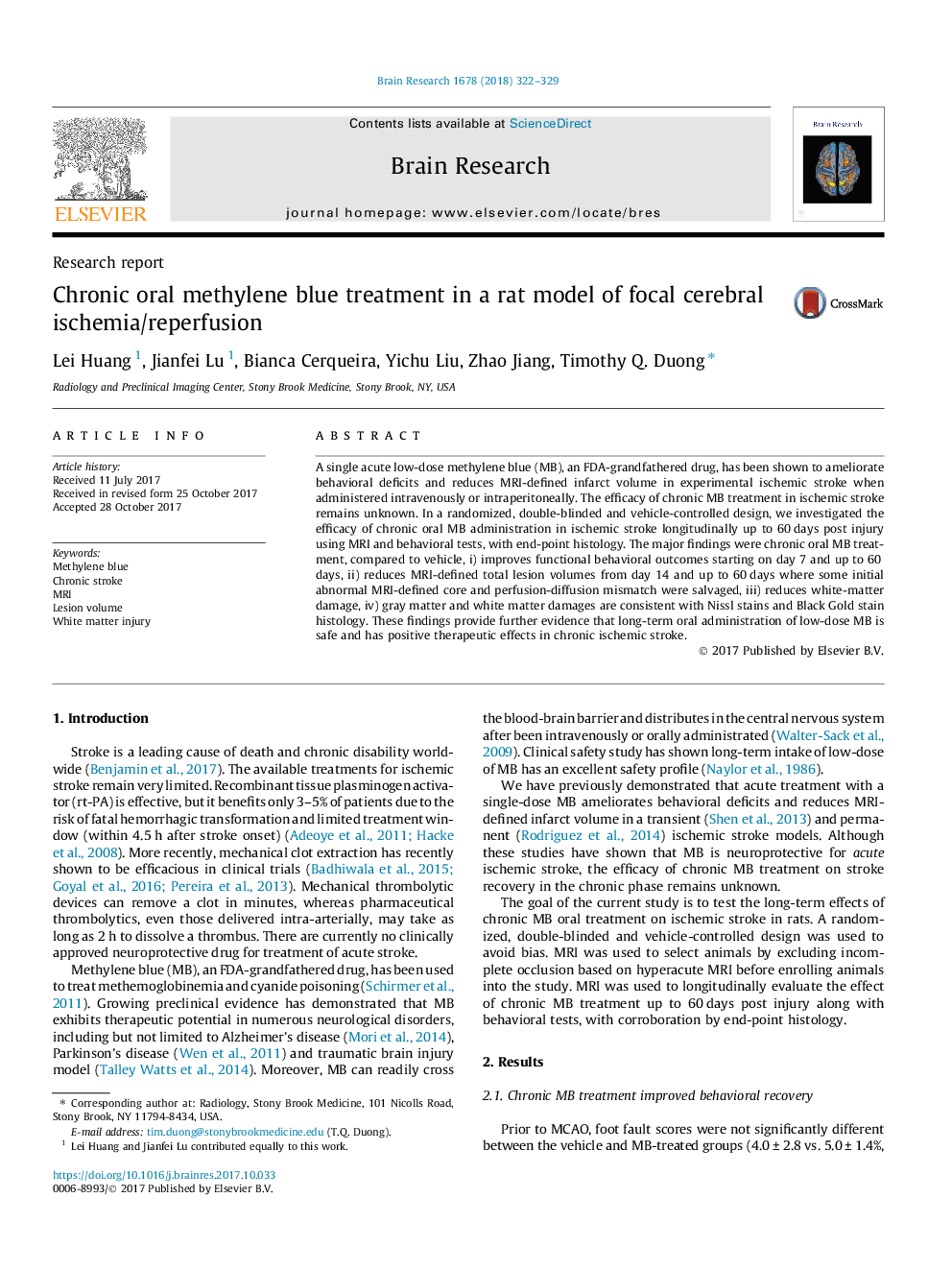| Article ID | Journal | Published Year | Pages | File Type |
|---|---|---|---|---|
| 8839982 | Brain Research | 2018 | 8 Pages |
Abstract
A single acute low-dose methylene blue (MB), an FDA-grandfathered drug, has been shown to ameliorate behavioral deficits and reduces MRI-defined infarct volume in experimental ischemic stroke when administered intravenously or intraperitoneally. The efficacy of chronic MB treatment in ischemic stroke remains unknown. In a randomized, double-blinded and vehicle-controlled design, we investigated the efficacy of chronic oral MB administration in ischemic stroke longitudinally up to 60â¯days post injury using MRI and behavioral tests, with end-point histology. The major findings were chronic oral MB treatment, compared to vehicle, i) improves functional behavioral outcomes starting on day 7 and up to 60â¯days, ii) reduces MRI-defined total lesion volumes from day 14 and up to 60â¯days where some initial abnormal MRI-defined core and perfusion-diffusion mismatch were salvaged, iii) reduces white-matter damage, iv) gray matter and white matter damages are consistent with Nissl stains and Black Gold stain histology. These findings provide further evidence that long-term oral administration of low-dose MB is safe and has positive therapeutic effects in chronic ischemic stroke.
Related Topics
Life Sciences
Neuroscience
Neuroscience (General)
Authors
Lei Huang, Jianfei Lu, Bianca Cerqueira, Yichu Liu, Zhao Jiang, Timothy Q. Duong,
